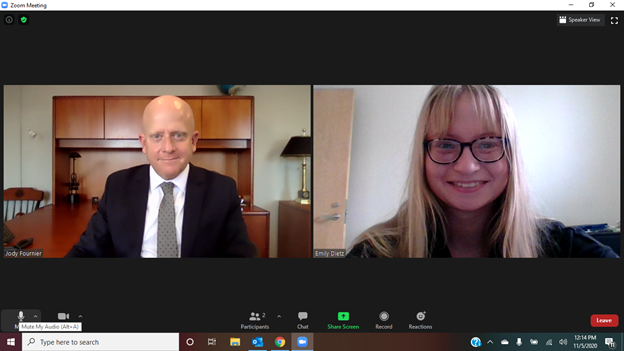Earlier this week, Capital University announced an intention to return to complete in-person learning for the Fall 2021 semester. The email sent to the campus community stated that declining case numbers and the availability of vaccinations were two of the primary reasons behind the decision.
Although this announcement seems a bit premature, Provost Jody Fournier states that Capital’s administration has been working closely with the Franklin County Health Department to develop a reopening strategy.

According to Fournier, “All indications are that vaccinations for the general population will be available in the summer.” Additionally, he notes that Capital has been discussing the possibility of hosting vaccination clinics on campus, although nothing has been confirmed yet.
For Capital’s leadership, it was important to announce reopening before students register for fall semester courses, which is coming up in just a few weeks. The switch to in-person instruction could have a major effect on a student’s desired schedule, so the information is crucial for the advising process.
Fournier acknowledges that, despite favorable predictions of continued low case numbers and an increasing availability of vaccinations, an in-person opening may be derailed by a number of factors. He emphasizes Capital’s ability to rise to any situation, stating, “Please know we have contingency plans in place so that if we need to change course, we will be able to quickly move to an alternative course delivery model.”
The return to in-person instruction is intended to mitigate the burdens that remote and hybrid courses have placed upon faculty and students.
Despite obvious challenges, Fournier reports student success, as measured by the retention rate of first-year students and the undergraduate average GPA, has returned to or exceeded pre-pandemic levels. This continued achievement has been realized by extraordinary effort on the part of faculty, staff, and students.
“However,” Fournier notes, “students continue to report new and increasing challenges related to the pandemic. This is especially true for behavioral and mental health concerns.”
The return to in-person instruction is intended to address these concerns by taking steps to return to normalcy.
The trials of the last year have increased the awareness of remote courses, and this new method of learning might not go away altogether. The schedule flexibility of hybrid courses is a desirable quality, and, according to Fournier, “One approach we are analyzing is selectively offering more hybrid courses to students at specific points in the learning process to promote and enhance a student’s ability to schedule applied, active learning opportunities like internships, research, and community-engaged learning.”
Ultimately, the University’s decision to return to in-person learning for the fall semester was made with students in mind, a point emphasized by Fournier: “All of our decisions have been, and will continue to be, based on maximizing health and safety, learning, and success.”


